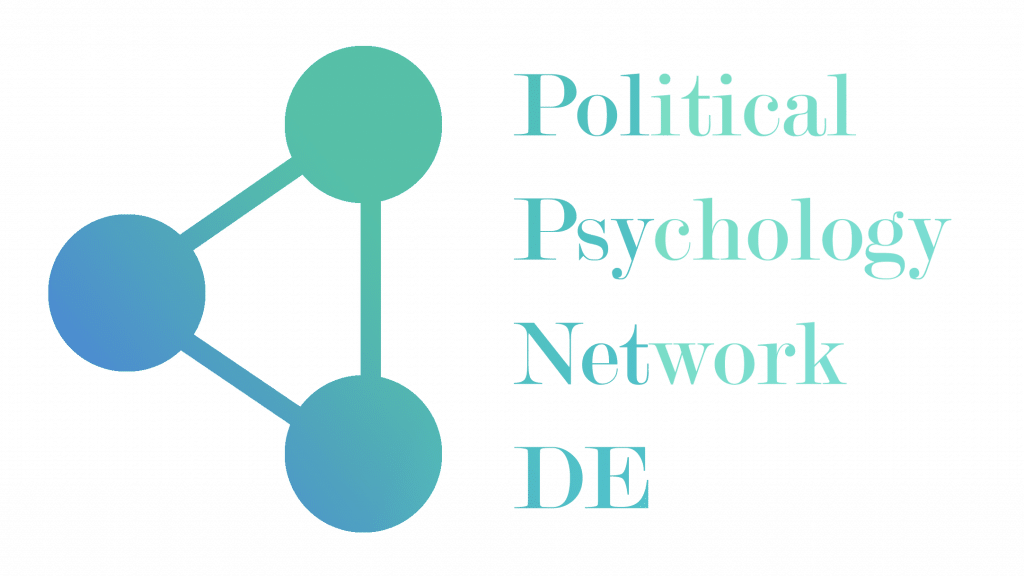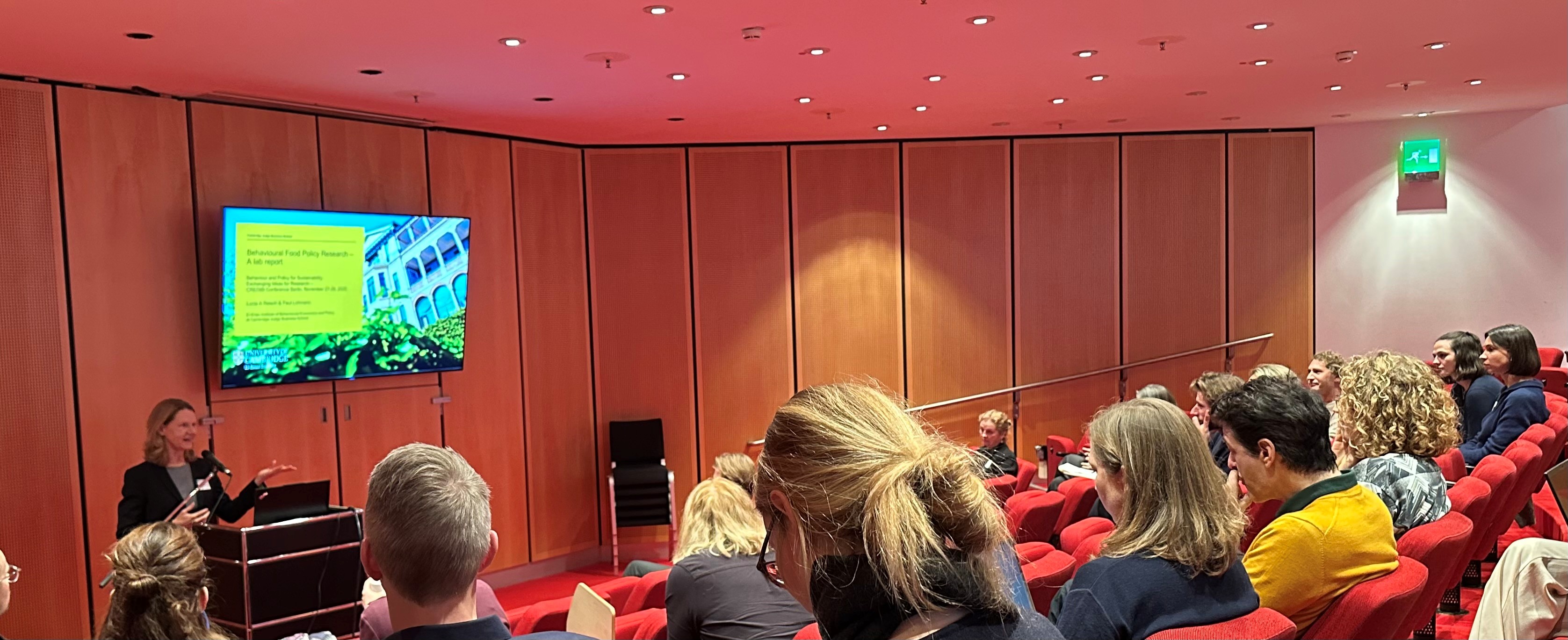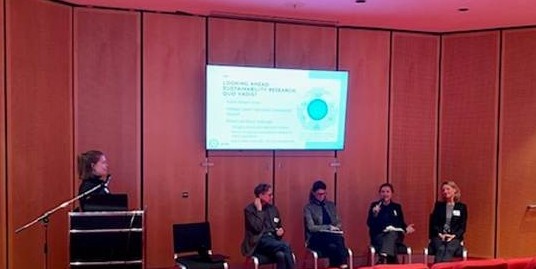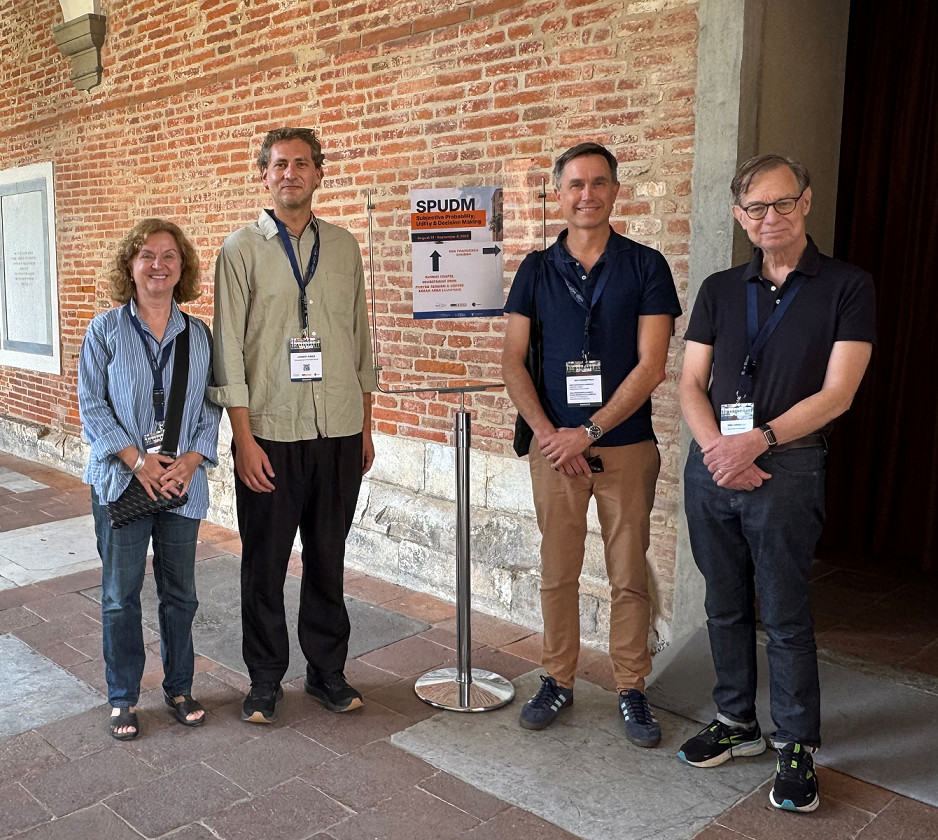CREDiBl
Center for Research on Environmental Decisions in Berlin
- funded by the Einstein Foundation Berlin

Led by Professors Elke Weber (Princeton University) and Eric Johnson (Columbia University), we are a dedicated group of six researchers passionate about leveraging behavioral and social sciences to confront challenges related to climate change. On our website, you’ll discover insights into our cutting-edge research, stay updated on the latest news and events, and get to know our team members. Whether you’re a fellow researcher, a policymaker, or simply someone curious about our work, we invite you to explore and engage with our content.
Our team is in contact with several Berlin institutions that have similar research interests. These include:
> the Climate Change Center Berlin Brandenburg
> the Berlin Social Science
> the Bundeskanzleramt (Department 612)
> the Klimafakten-Initiative
Stay connected: Subscribe to our newsletter for regular updates straight to your inbox.
Events
The climate crisis is a global problem that requires working together. To foster collaboration and share our work with the world we are actively participating in several events.
Below, we will show you a mix of conferences, workshops, and other events we are actively involved in.
Upcoming Events
There are currently no upcoming events. We will post new events soon!
Past Events

6th Annual Meeting of the German Political Psychology Network
Part of the CREDiBl team attended the sixth annual meeting of the Political Psychology Network at the University of Vienna on February 26 and 27. The group’s latest research findings were presented and discussed there. Exciting presentations by others were listened to and contacts were made within the political psychology community. More information about the conference can be found here.


Behavior and Policy for Sustainability: Exchanging Ideas for Research Conference
27–28 November 2025
As the project approaches its end, the conference brought together researchers working on related topics to exchange ideas, build connections, and explore future directions.
The conference opened with a keynote by Prof. Kristian Nielsen highlighting how behavioral insights can be scaled beyond individual-level interventions to inform institutional change, public policy design, and long-term societal transformations. It set the stage for the conference by emphasizing both the potential and the responsibility of behavioral science in the context of climate change.
The first session focused on how people perceive climate policies and what drives acceptance and support. The contributions underlined that perceived fairness, transparency, and comprehensibility are central to durable public support for climate policy.
The second session turned to the actors who can drive sustainability transformations. This session highlighted that citizens, professionals, and institutions all have roles to play. Aligning their perspectives is crucial for effective change.
The third session addressed behavioral and policy aspects of the mobility transition. The presentations in this session showed how empirical research, modeling, and participatory formats can be combined to support a just and sustainable mobility transition.
A second keynote by Prof. Lucia Reisch and Dr. Paul Lohmann provided an in-depth view into how behavioral insights can inform food policy. Drawing on experimental and applied work, they illustrated how subtle changes in choice architecture and policy design can encourage more sustainable and healthy dietary behaviors, while raising important questions about effectiveness, ethics, and scalability.
The conference concluded with a panel discussion, reflecting on key lessons from the two days and discussion on where research on behavior and policy for sustainability should go next. The discussion underscored the importance of long-term cooperation between behavioral scientists, policymakers, and practitioners to support sustainable societal transformations.
The CREDiBl team hope that the new connections, ideas, and potential collaborations emerging from this event will continue to develop beyond the conference and contribute to a strong network of scholars committed to advancing sustainability through research and practice.

SUBJECTIVE PROBABILITY, UTILITY & DECISION MAKING (SPUDM)
September 2025
In September 2025, CREDiBl members contributed to a symposium at the “Subjective Probability, Utility, and Decision Making” (SPUDM) meeting in Lucca, Italy. The symposium aimed to set out an impact-driven agenda for climate research, discussing data needs, the particular contribution of cognitive science, and the importance of interdisciplinary research. More information about the meeting can be found here.


International Conference on Environmental Psychology (ICEP)
June 15-18, 2025
In mid-June, the CREDiBl team took part in the ICEP conference in Vilnius (Lithuania). The team was represented there with posters and presentations.
The ICEP conference brings together researchers from different fields with climate-relevant interests. More information about the conference can be found here.


Workshops with the Max Planck Institute and "citizen-centred government"
January 2025
CREDiBl is in active exchange with other organizations, including the Max Planck Institute for Human Development (especially the Center for Adaptive Rationality) and the German government’s citizen-centred government team.
In January 2025, we had the opportunity to present our research to both groups and remain in ongoing contact.

September 26-29, 2024
CREDiBl visited Paris at the end of September: In tandem with our Columbia team, we organized a session titled “Consumer Climate Challenge: Behavioral Science for the Climate Crisis”. We were delighted to receive insightful comments and feedback at this prestigious conference.

K3 - Congress for Climate Communication
September 24-26, 2024
From September 24th to 26th, CredIble was represented at the K3-Congress on Climate Communication in Graz. During these two days we listened to inspiring keynotes, participated in engaging workshops, and got to connect with researchers and practitioners from politics, NGOs, and business. We also had the opportunity to give our own workshop on better climate communication that foster social cohesion, and to run a survey on the perceived effectiveness of CO2-reduction policy measures. The Congress ended on a high note with a charter on good communication, which we were proud to sign. You can read it here: k3-klimakongress.org.
We would like to thank the wonderful organizers of the K3-Congress, the lively participants in our workshop, and all the great conversations we had with so many people. We look forward to stay in touch and are excited for the next K3!

Long Night of the Sciences at TU Berlin
June 22, 2024
On June 22, we participated at the long night of the sciences at TU Berlin with a stand at Wilhelmstraße 67. Participants were able to complete our “climate quiz” and talk to us about our research. We are looking forward to the LNDW 2025!

Weizenbaum Conference
June 17-18, 2024
Our work on “Determinants of pro-environmental Attitudes and Behaviors in the digital Era” has been accepted at the prestigious Weizenbaum Conference. For our work we explored the case of German workers in high-emitting industries.
Find out more about the conference here: weizenbaum-conference.de.


What Works Climate Solutions (WWCS) Summit
June 9-12, 2024
In early June, we took part in the WWCS Summit at TU Berlin with two program items.
On the second day of the conference, Arian Trieb presented our research on climate communication in German politics (see picture top left).
On the third day of the conference, Professor Elke Weber took part in a panel discussion on “Democracy and Climate in Crisis” (bottom left).
Further information about the WWCS Summit can be found here: whatworksclimate.solutions.


Behavioral Decision Research in Management (BDRM) Conference
June 6-8, 2024
We are glad that our colleague Eli Sugerman (Columbia Business School) presented our joint ongoing work on carbon misestimations and “attribute substitution” at the renown BDRM Conference in Chicago.
Further information about the conference is available here: chicagobooth.edu.
Publications
Below is a brief overview of our ongoing projects.
(Curing) Carbon Ignorance
In terms of carbon emissions, is it better to switch to a green energy provider or to take one less round-trip to the Canary Islands? Would federal-road tolls curb emissions more than banning domestic flights? Does McDonald’s have a bigger carbon footprint per 10€ of revenue than Tchibo?
In a replication and extension of Johnson et al. press) we let German participants ponder these questions and we are working on ways to improve their carbon judgements. A scientific article on this project was published in the Journal of Environmental Psychology. You can read it here:
https://www.sciencedirect.com/science/article/pii/S0272494425001963?via%3Dihub
German citizens misjudge the emissions reduction potential of climate policy
In our first published preprint, we analyze how well German citizens know about CO2 emission reduction potential of policy measures. As the title suggests, our results show that climate knowledge is quite limited in this respect… Here is the link to the preprint: https://doi.org/10.31219/osf.io/hs2q6.
This line of projects is primarily led by Dr. Jonas Ludwig, Arian Trieb and Professor Eric Johnson.
Drivers of pro-environmental behavior
In order to meet the binding targets for climate neutrality, Germany will need a fundamental change in policy and behavior in all areas of society. But what drives pro-environmental behavior? Do pro-environmental attitudes really lead to pro-environmental behavior? What is the role of moral disengagement, innovation, or emotions? We are exploring these questions in an analysis of citizens and political decision-makers from small German municipalities. As part of this project, a scientific article was published in Environmental Research Letters. You can read the article here:
https://iopscience.iop.org/article/10.1088/1748-9326/ae00de
This project is primarily led by Vanessa Hiess and Professor Elke Weber.
Downscaling Citizen Assemblies
What characteristics of citizens’ assemblies lead to their success and to more progressive policy proposals? Is it their size, duration, or the fact that the participants do not know each other? What role do social identities, attitudes, or emotions play in this process? Using a series of experiments, we are investigating these questions in the context of the mobility transition and at the university level.
This project is primarily led by Katharina Götting, Dr. Lisa Walsleben, Vanessa Hiess, and Professor Elke Weber.
Climate Communication of German Political Institutions
How do German government institutions communicate about climate? To work on this question, we are analyzing hundreds of press releases by the German government.
Our preliminary results were accepted at the What Works Climate Solutions Summit, which took place in June 2024.
This project is primarily led by Arian Trieb (former employee) and Professor Elke Weber.
Attitude-Behavior Gap and Cognitive Dissonance related to Climate
How do workers in high-emitting industries think about carbon emissions? Are there climate-related behaviors at home different than at work? Do they feel “cognitive dissonance” (i.e. discomfort when behaviors do not align with values or beliefs)? Is this different from workers in the tech industry, for instance?
In our recent studies we are exploring these questions. We are happy that our results were accepted at the 2024 Weizenbaum Conference, where we will discuss these findings in depth.
This project is primarily led by Dr. Lubna Rashid (former employee), Vanessa Hiess and Professor Elke Weber.
Press
rbb Inforadio
Why it is so difficult to do the right thing
Although we actually know what would be right, we often decide differently – for example when it comes to climate protection. What is the reason for this and can decision-making be influenced? Psychologist Elke Weber investigates this. By Jessica Wiener
Team
We are a dedicated group of six researchers passionate about leveraging behavioral and social sciences to confront challenges related to climate change.

Professor Elke U. Weber
A psychology professor at Princeton University, Elke U. Weber is currently an Einstein Visiting Fellow at the Science of Intelligence Center, where she researches political decision-making powers and global action to tackle climate change through the behavioral and social sciences. Elke Weber is connected to the Center Climate Change, and draws on psychological theories to investigate the extent to which personal experiences, as well as social norms and interactions, affect decision-making and action. To ensure the study considers the specific social and existential factors that influence people’s decision-making, Elke Weber’s project is based on a comparative analysis of existing studies on climate policy and environmental protection measures, comparing Berlin-Brandenburg, New Jersey (USA), and New Delhi (India).
You can find Professor Weber’s publications and more information on her website.

Professor Eric J. Johnson
Eric J. Johnson from the Center for Decision Sciences at Columbia University is is currently an Einstein Visiting Fellow at the Science of Intelligence Center. In his CREDiBl project he links climate research with the behavioral sciences and economics. Based at the Technische Universität, Eric Johnson researches decision architectures, i.e. ways of presenting choices and facilitating decision-making processes by utilizing the various social, economic, and psychological factors that shape our actions. Using empirical methods as well as face-to-face and online interviews, the projects aim to develop approaches and tools for political structures and businesses to more effectively communicate their carbon impact to citizens. In addition, we are exploring effective carbon labeling and other forms of choice architecture to improve citizen’s knowledge of their carbon footprint.
You can find Professor Johnson’s publications on his Columbia faculty web page.
Johnson is also the author of The Elements of Choice, a book describing choice architecture and its consequences.

Katharina Götting
Katharina’s research at CREDiBl focuses on the role of individuals as citizens, workers and members of communities in transformation processes. In particular, she looks at the potential and limitations of randomly selected climate councils in different areas. On the one hand, she is interested in psychological variables such as experiences of effectiveness, emotions, social norms and perceived fairness. On the other hand, she is interested in the social challenge of intersectionality and deliberative processes in times of shifts to the political right. Her research is particularly linked to projects of Prof. Dr. Elke Weber and other CREDiBl team members.
Before joining CREDiBl, she conducted research on attitudes, political protest and participation in the context of land redistribution in the mobility transition at the RIFS Helmholtz Center Potsdam. She has a background in psychology, which she expanded during her doctorate in an interdisciplinary team with insights into social and political sciences. She also trained as a systemic mediator and was active in the political consultancy adelphi and the social enterprise Acker e.V. You can find more information about Katharina’s research on her ResearchGate profile.
Photo: Die Hoffotografen GmbH Berlin

Dr. Jonas Ludwig
Jonas does research at the intersection of behavioral economics and social/cognitive psychology, focusing on judgment and decision making across various domains. He currently works with TU Berlin’s Climate Change Center Berlin Brandenburg and the Center for Decision Sciences at Columbia University. Jonas is particularly interested in better understanding how motivational and social factors affect choices and decision processes in situations that many decision makers perceive as difficult, for instance, because conflicting motivations pull them in different directions. His current projects focus on how people judge the ecological impact of consumer choices, as well as decision making related to sustainability, climate action, and ethical behavior more generally. Jonas is a member of Eric Johnson’s Einstein Visiting Fellowship Team. Jonas’s most recent publications include a book chapter entitled “Information and Motivation for Collective and Independent Action” in “Between Imposition and Confidence: Transformation as a Societal Project
You can find more information about Jonas’ research on his ResearchGate profile.

Vanessa Hiess
Vanessa completed her Bachelor’s degree in Political and Administrative Sciences at the University of Constance before successfully completing her Master’s degree in Innovation Management, Entrepreneurship and Sustainability (IMES) at TU Berlin. After gaining professional experience in advocacy for higher education and research in Brussels and in the field of sustainable development policy in Berlin, she began her doctorate under the supervision of Prof. Jan Kratzer. With her doctoral application, Vanessa received an Einstein Fellowship and is thus part of the Center for Research on Environmental Decision-Making in Berlin, which is led by Prof. Elke Weber (Princeton) and Prof. Eric Johnson (Columbia). Her research is located at the interface of sociology, psychology, sustainability and behavioral sciences, focusing on (un)sustainable behavior of decision-makers. You can find recent publications and further information about Vanessa’s research on her ResearchGate profile.

Dr. Lisa Sophie Walsleben
Lisa is interested in the emotional, cognitive, and social processes that influence individual responses to societal and organizational change toward sufficiency and regeneration. At CREDiBl, Lisa’s research focuses on the role of different forms of deliberation and prospective sensemaking in sustainability transformations, particularly in the mobility sector. In her previous research, Lisa investigated the implementation of sufficiency strategies in organizations, processes involved in the unlearning of conventional leadership ontologies, and facilitators of behavioural change toward sufficient consumption, among other topics.
Lisa earned both her Bachelor’s and Master’s degrees in Psychology at Humboldt University of Berlin. Her dissertation focused on psychological empowerment in the context of trends in today’s working world. You can find more information about Lisa’s research on her ResearchGate profile:
CREDiBl Past Members
Here you can find previous members of the CREDiBl Team.

Arian Trieb
Arian Trieb was a predoctoral researcher during his time at CREDiBl, specializing in the study of decision-making processes and their impact on sustainable consumption. Arian completed an MPhil degree at the Judge Business School, University of Cambridge. Prior to joining CREDiBl, Arian gained valuable industry experience as an account strategist at Google. With a keen interest in understanding how individuals make sustainable decisions, Arian focussed on examining the effective implementation of choice architecture to promote the adoption of sustainable behaviors in the Berlin and Brandenburg regions. Arian is now a PhD student in behavioral marketing at The Wharton School, University of Pennsylvania in the USA.
You can find more information about Arian’s research on his ResearchGate profile.

Dr. Lubna Rashid
Lubna’s work lies at the intersection of ecological sustainability, behavioral psychology, and digital entrepreneurship. She is particularly interested in understanding the drivers of (un)sustainable decision-making and the behavioral change surrounding climate adaptation and mitigation. She worked with the Berlin Brandenburg Climate Change Center and the Princeton University Behavioral Science for Policy Lab with Prof. Dr. Elke Weber as part of the Einstein Visiting Fellowship, which links climate research with behavioral sciences and economics. She is now part of the Entrepreneurship and Innovation Management chair at the TU Berlin, designing courses and educational projects on entrepreneurship, sustainability, and technological innovation in challenging contexts.
You can find more about Lubna’s research on her ResearchGate profile or on her webpage
Contact
Please do not hesitate to contact us.
Newsletter
Stay connected: Subscribe to our newsletter for regular updates straight to your inbox.
Imprint
Informations according to § 5 TMG
Elke Weber
E-Mail: contact@credibl.de
Responsible editor according to § 6 MDSTV:
Elke Weber
Disclaimer
Despite a careful check of links to external websites, we do not assume any liability for the content of external websites.
© All images on this website are protected by copyright.
Address
Technische Universität Berlin
Erweiterungsbau
Floor 2, EB 238
Straße des 17. Juni 145
10623 Berlin